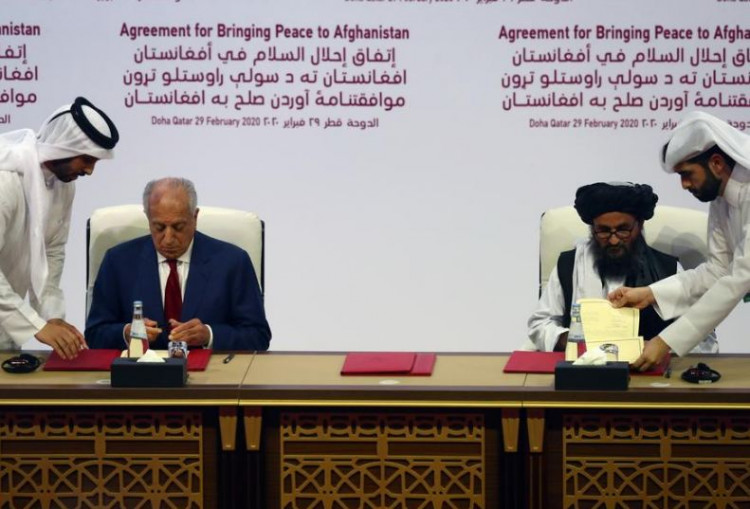President Donald Trump has remained silent about his response to the 43 attacks launched Tuesday by the Taliban against positions held by Afghan National Defense and Security Forces (ANDSF) throughout Afghanistan that killed at least 25 ANDSF soldiers and wounded 13 others.
The coordinated attacks place in jeopardy the fulfillment of the troop withdrawal accord signed by the Trump administration and the Taliban only last February 29. This accord provides for the withdrawal of the entire Resolute Support Mission (RSM) forces in the space of 14 months based on the Taliban fulfilling several conditions, among which is refraining from attacking ANDSF and RSM troops. RSM comprises all the U.S. and NATO forces currently fighting in Afghanistan.
The accord also committed the government of Afghan president Ashraf Ghani to a prisoner swap that would have seen the government release 5,000 Taliban prisoners in exchange for 1,000 ANDSF prisoners held by the insurgents. This prisoner swap was to have taken place before the start of intra-Afghan talks on March 10.
Ghani on Sunday balked at releasing the prisoners, saying this matter concerned national security. The Afghan government was not involved in the talks that led to the February 29 accord. The Taliban responded by suspending the intra-Afghan talks Monday and launching attacks Tuesday. There were attacks in 16 provinces Tuesday targeting civilians and security forces, said Marwa Amini, a deputy spokeswoman for the Ministry of Interior Affairs. In all, the Taliban conducted 43 attacks onANDSF checkpoints in Helmand province. An attack on an ANDSF checkpoint at Nahr-e Saraj in Helmand led to the RSM launching an aerial drone to blast the attacking Taliban fighters.
"The US conducted an airstrike Wednesday against Taliban fighters in Nahr-e Saraj, Helmand, who was actively attacking an #ANDSF checkpoint" tweeted Col. Sonny Leggett, a spokesman for U.S. Forces-Afghanistan (USFOR-A), "This was a defensive strike to disrupt the attack. This was our 1st strike against the Taliban in 11 days."
Col. Leggett also said Taliban leaders "promised the (international) the community would reduce violence and not increase attacks." He called on the Taliban "to stop needless attacks and uphold their commitments. As we have demonstrated, we will defend our partners when required."
The U.S. drone strike came hours after a telephone call between Trump and Taliban chief negotiator, Mullah Abdul Ghani Baradar. Trump refused to reveal the contents of the call but told reporters he "had a very good talk with the leader of the Taliban." He believed the Taliban who "have agreed there is no violence, don't want violence."
"We will see what happens. They're dealing with Afghanistan but we will see what happens," said Trump.






